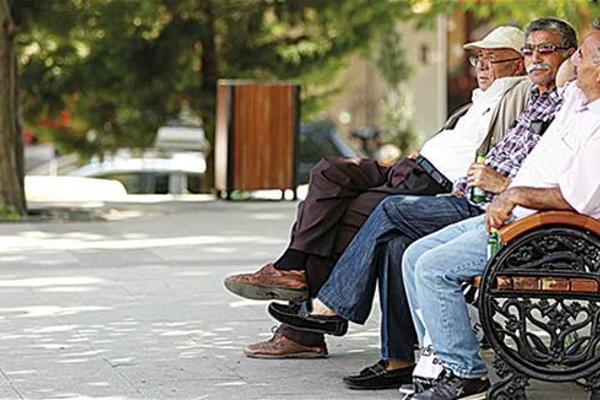Households in Ankara have highest equalized disposable income in Turkey: Survey
ANKARA


The regions with the lowest annual average equalized household disposable income were the eastern provinces of Mardin, Batman, Şırnak and Siirt provinces with 8,679 liras. These provinces were followed by the southeastern provinces of Şanlıurfa and Diyarbakır, according to the “Income and Living Conditions Survey Regional Results in 2016” report by the Turkish Statistics Institute (TÜİK).
The survey showed that over the last five years there has been a deterioration in Turkey’s Gini coefficient, which is often used as a gauge of economic inequality, measuring income distribution or, less commonly, wealth distribution among a population. The Gini coefficient ranges between 0, which reflects complete equality, and 1, which indicates complete inequality.
The Gini coefficient was 0.404 for Turkey in 2016, with the lowest values of 0.315 realized in the TR81 region, which includes the Black Sea provinces of Zonguldak, Karabük and Bartın, the TRA1 region, which includes including the eastern provinces of Erzurum, Erzincan and Bayburt, and the TR42 region, which includes the northwestern provinces of Kocaeli, Sakarya, Düzce, Bolu and Yalova.
Highest inequality in Adana and Istanbul
The TR62 region, which includes the southern provinces of Adana and Mersin (0.414), and the TR10 region, which includes Istanbul (0.413) were the regions with the highest Gini coefficient.
In 2016, the income of the richest quintile was 7.7 times higher than the income of the poorest quintile for Turkey, the report also showed.
The provinces with the lowest relative at-risk-of-poverty-rate were Zonguldak, Karabük and Bartın, according to the survey.
The SR Level 2 regions with the highest relative at-risk-of-poverty-rate, calculated based on the poverty threshold set at 50 percent of the equalized household disposable median income of each region, was the TR62 region, which includes the provinces of Adana and Mersin at 15.9 percent.
The richest top 20 percent of society in Turkey received 47.2 percent of total income in 2016, marking a slight increase from the previous year, according to TÜİK data.
The “Income and Living Conditions Survey,” which was based on countrywide data and published on Sept. 18, showed that the ratio of the annual income of the 20 percent at the bottom of the pyramid also increased but by a smaller proportion.
The share of the top quintile by the equalized household disposable income was 47.2 percent, recording an increase of 0.7 points, while the share of the bottom quintile was 6.2 percent, with an increase of 0.1 points in comparison with the previous year.
